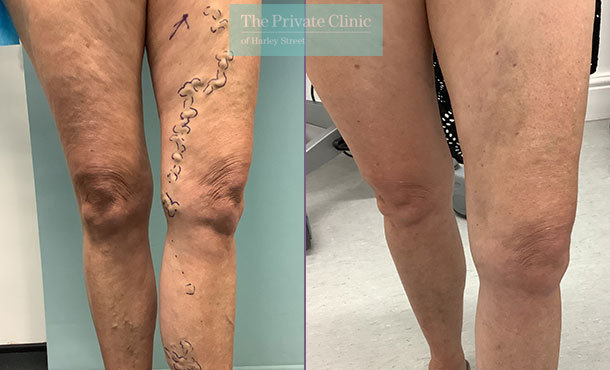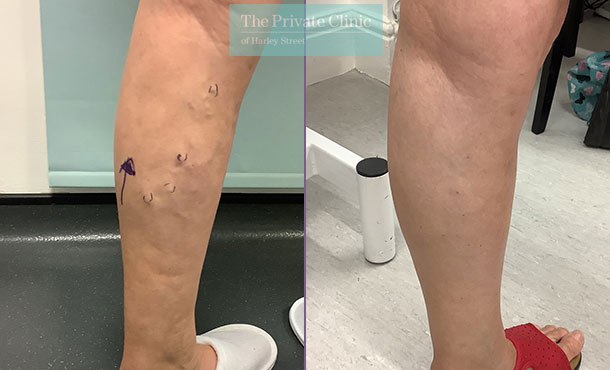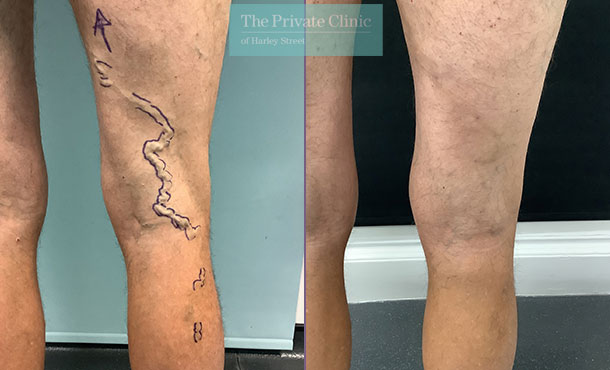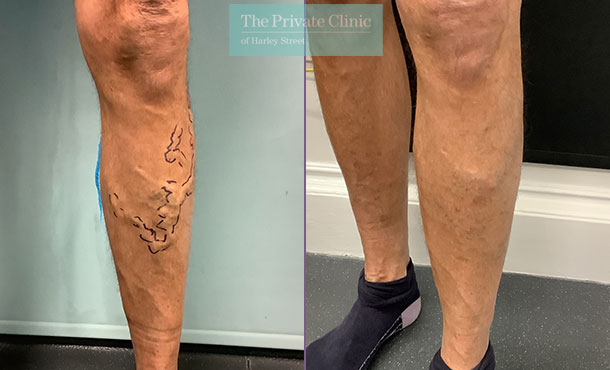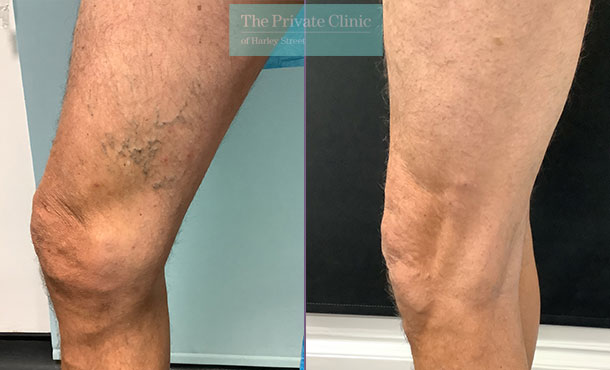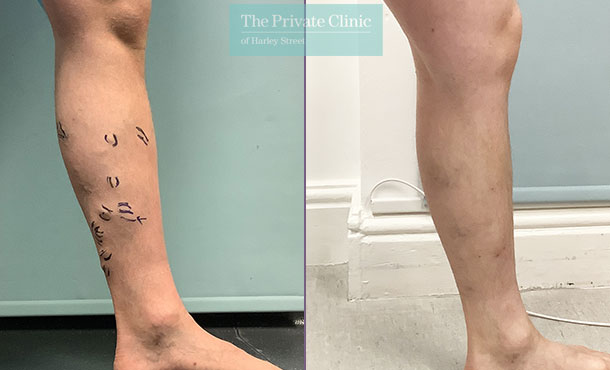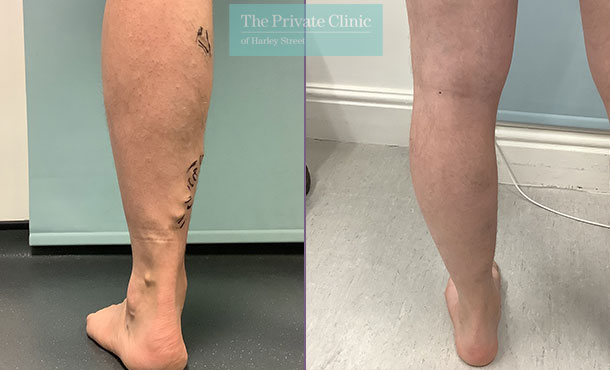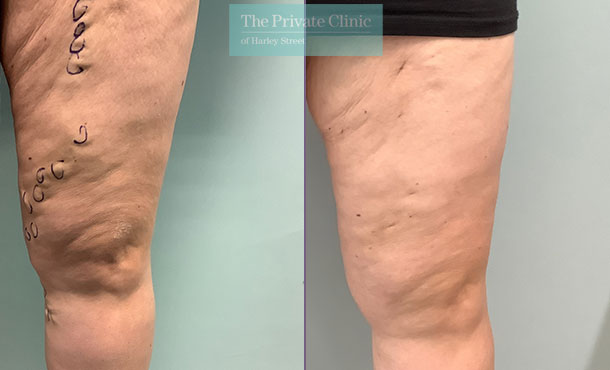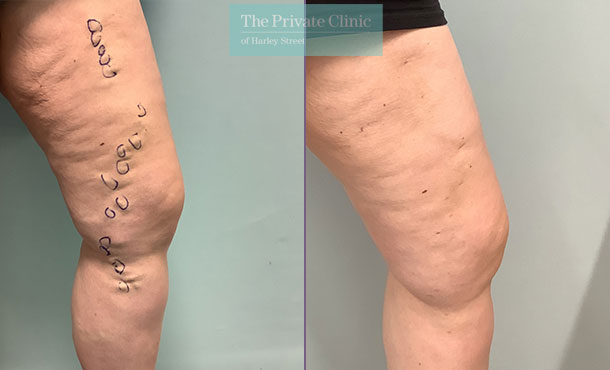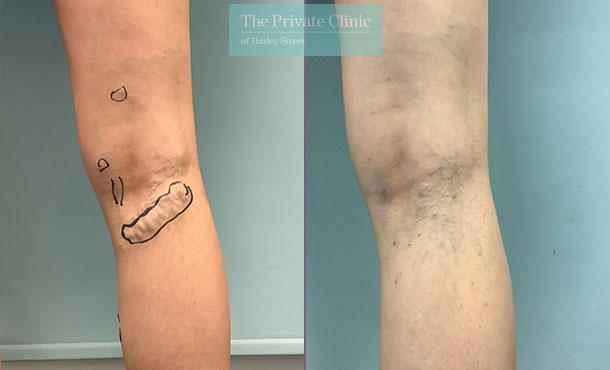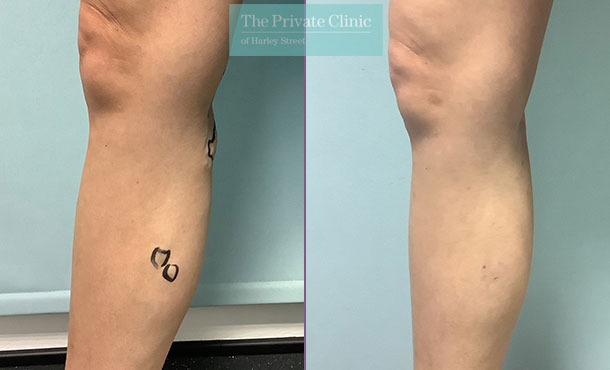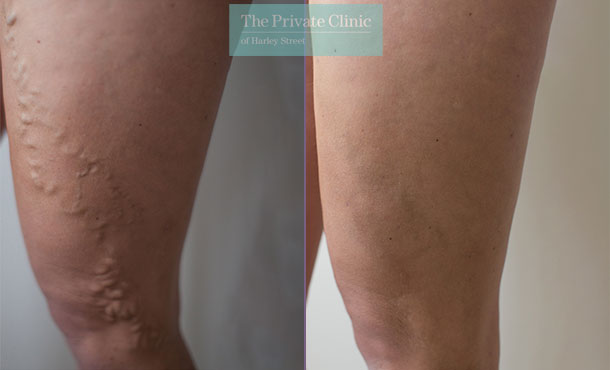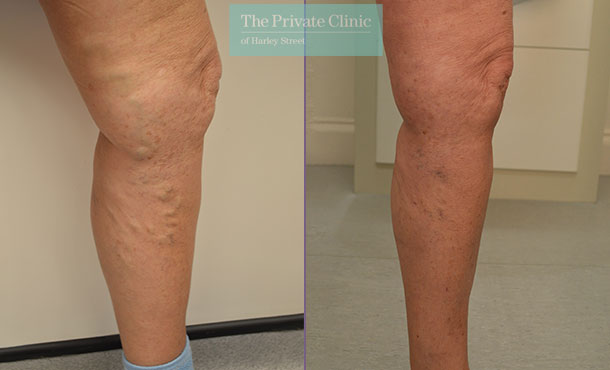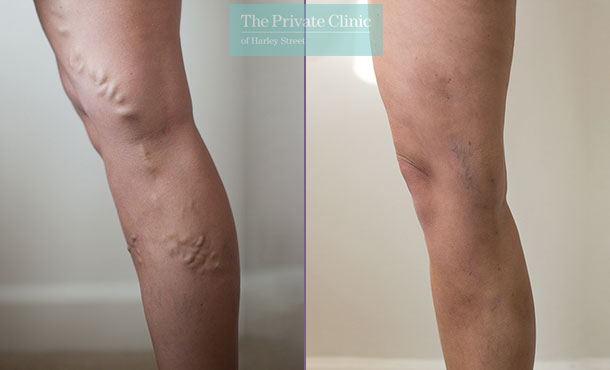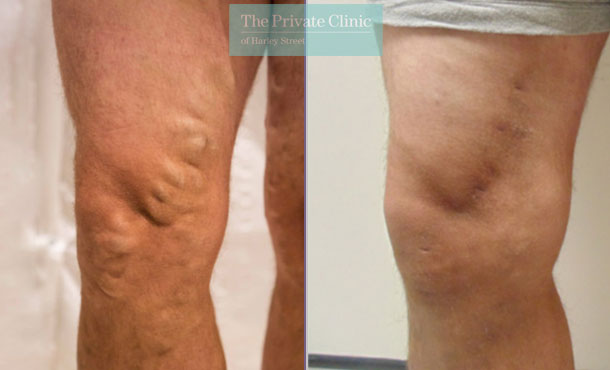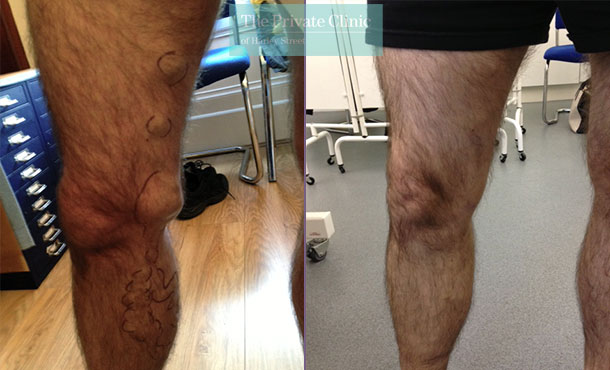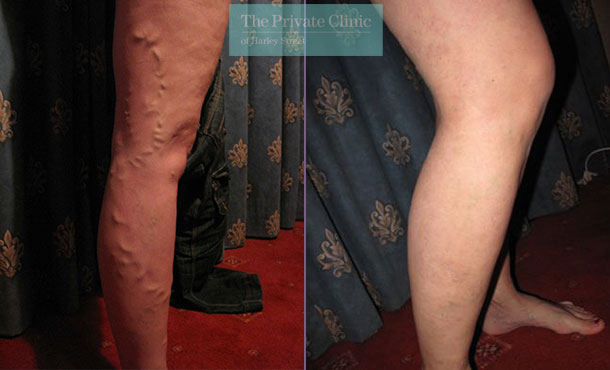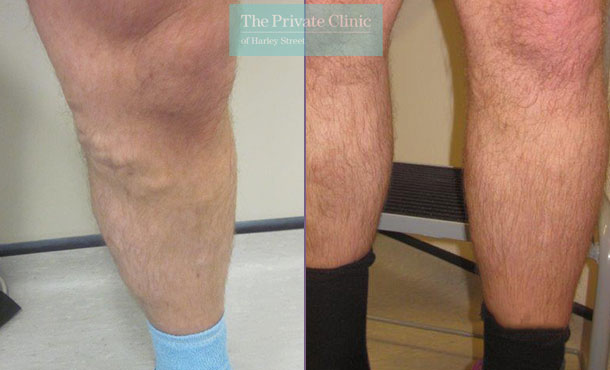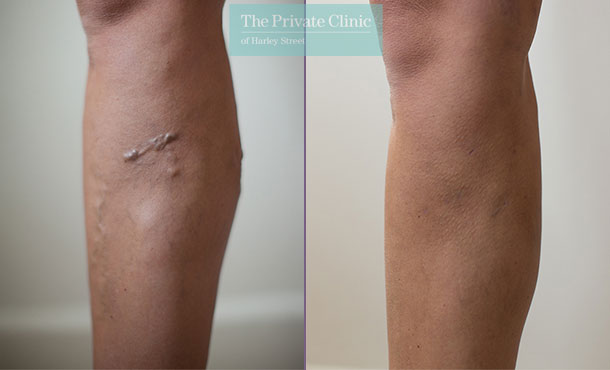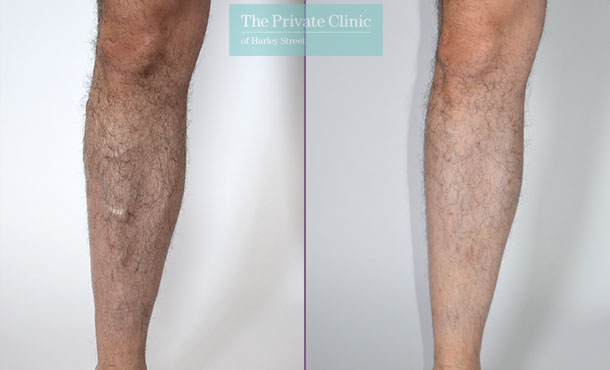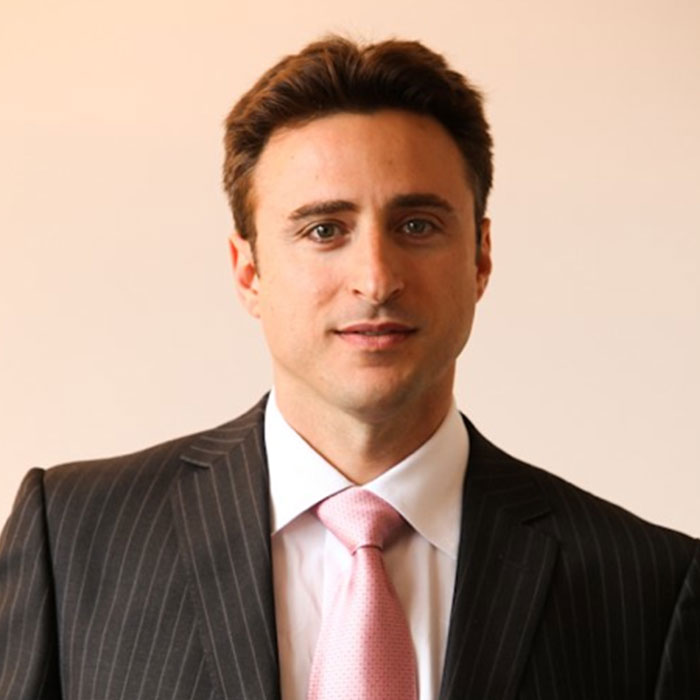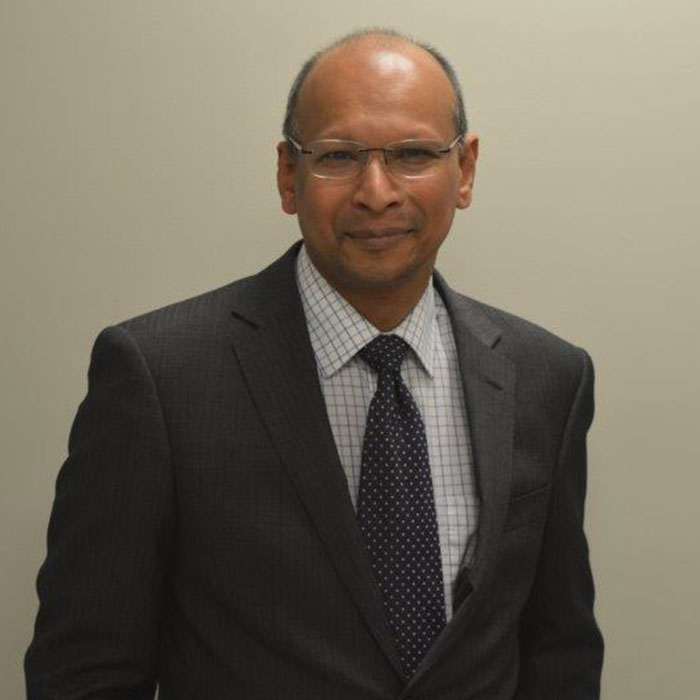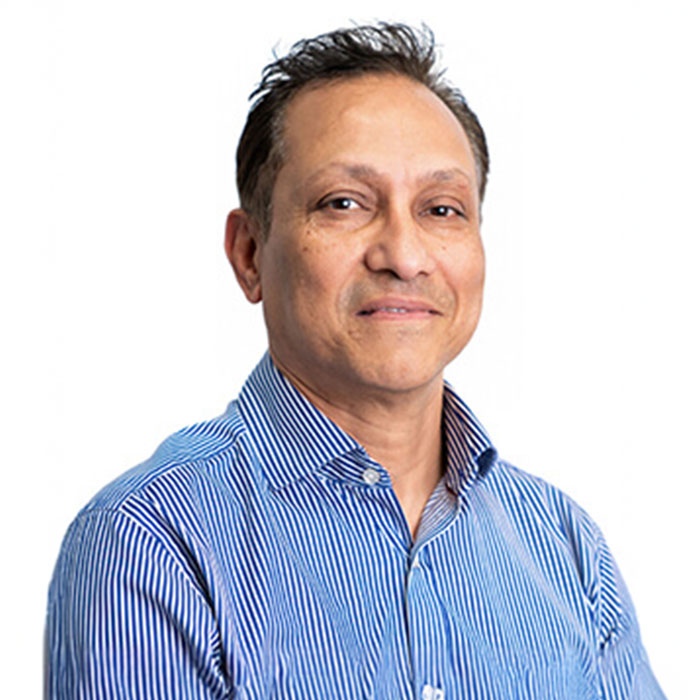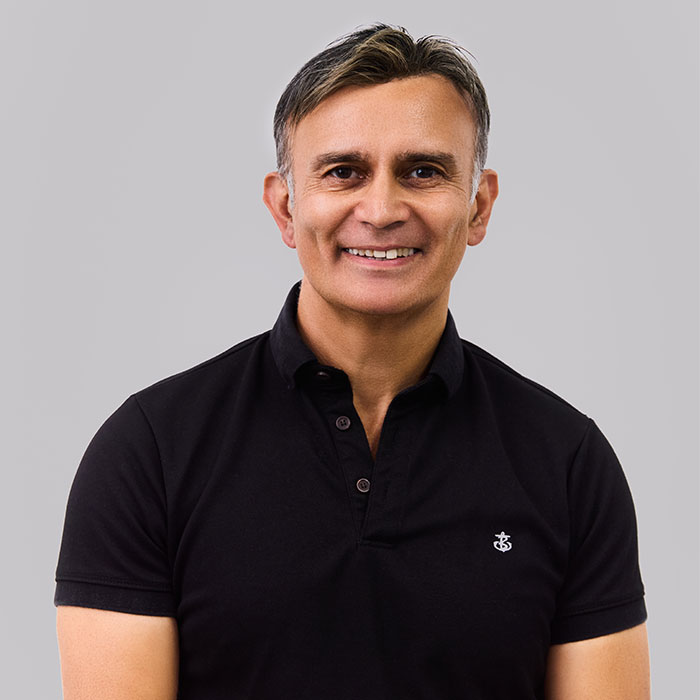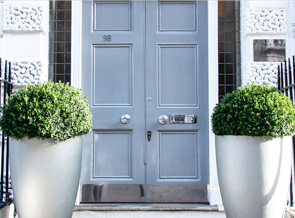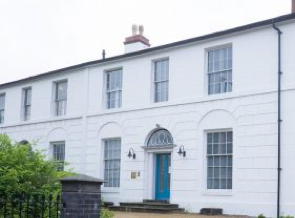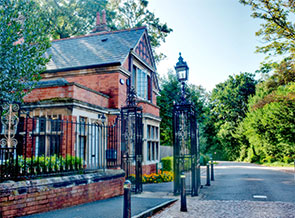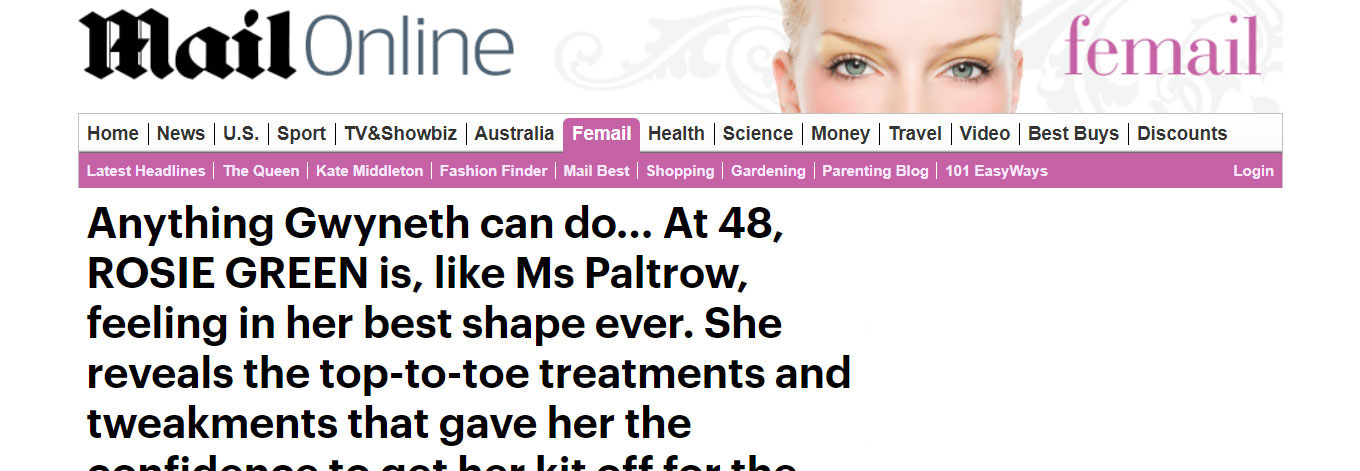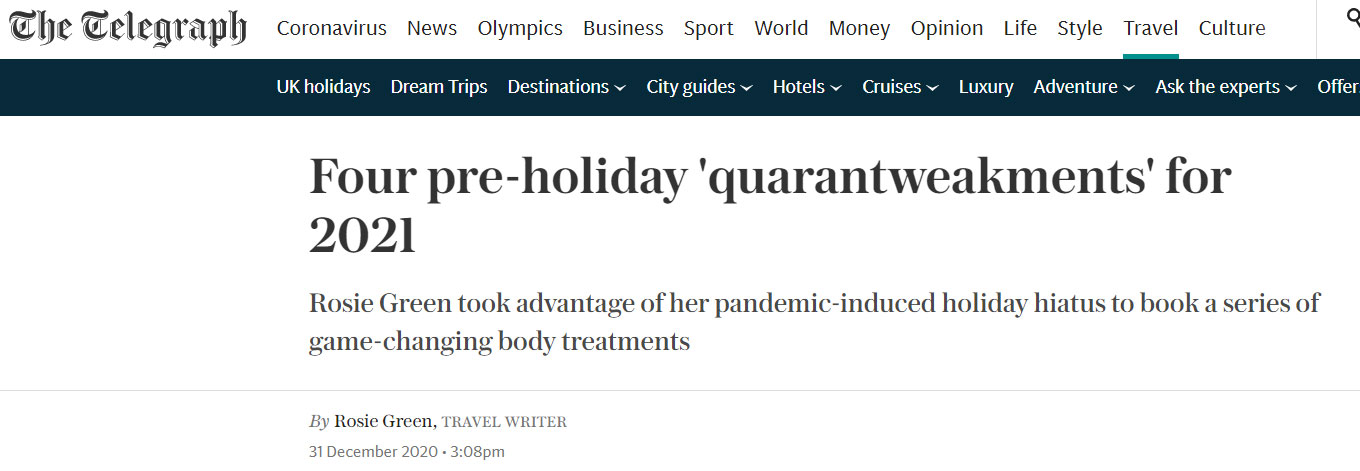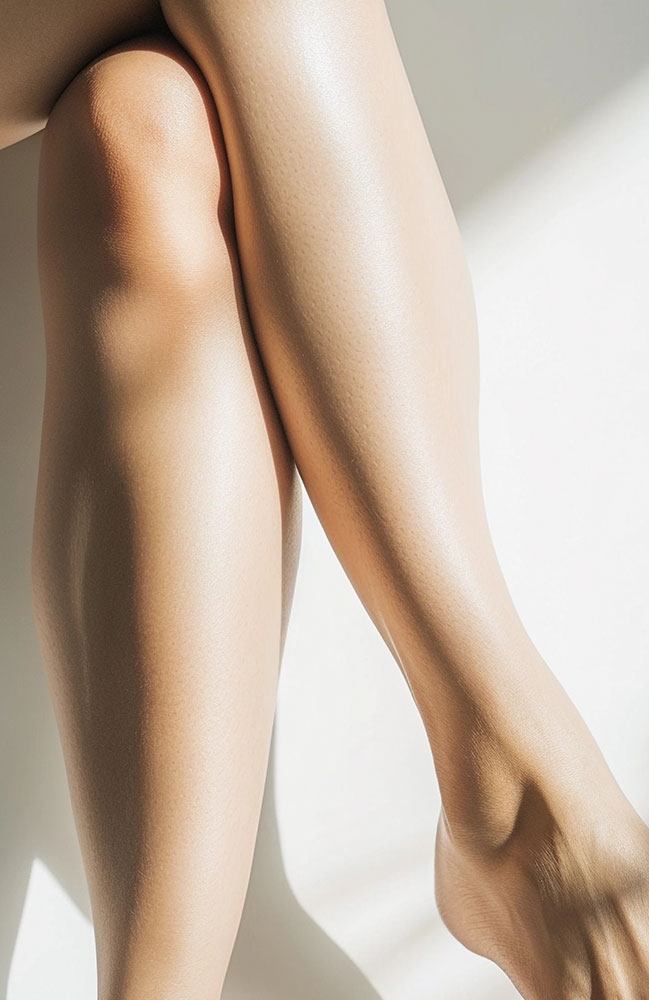
Varicose Veins Removal Treatment
At The Private Clinic, we understand how varicose veins can impact your life—whether it’s the discomfort they cause or the way they affect your confidence. Veins can become enlarged, swollen, lumpy, bumpy, or twisted in appearance, and for many, they are more than just a cosmetic issue; they’re a constant source of pain and frustration. But it doesn’t have to be that way. Varicose veins and spider veins are treatable, and no one should have to live with them.
With over 40 years of experience and more than 7,000 successful treatments performed, our Varicose Veins Treatment Clinic in London and other locations across the UK focus on treating the underlying cause of your veins, offering treatments that deliver long-term results. Imagine legs that not only look better but feel better too. Say goodbye to discomfort and hiding your legs—it’s time to live life to the fullest.

Why choose The Private Clinic for Varicose Vein Treatment?
- Over 7,000 successful treatments performed
- No big operations – walk-in walk-out procedures
- No stripping, only modern minimally invasive treatments
- All treatments performed under local anaesthetic
- Get back to work & your daily activities quickly
- Low recurrence rates and long-term results (EVLA has a 95.4% success rate after five years according to NICE Gold Standard findings)
- Flexible financing options available
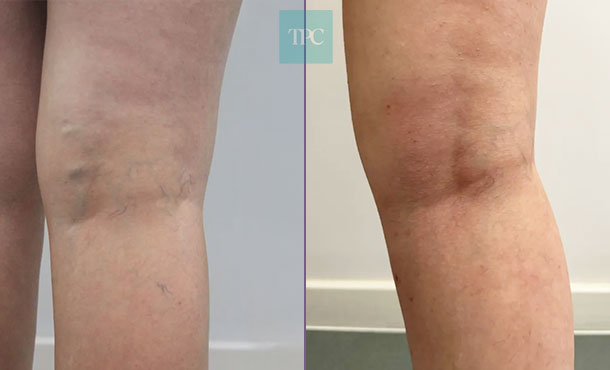
What Our Patients Say
Five Star Service & Results. Absolutely amazing results from both procedures, ensuring patient satisfaction, expectations and achieving the best results are a top priority!
– Cath
My varicose veins have completely disappeared,
and I’m free from the condition that haunted me since my teenage years. I’ve
got my confidence back!
– Martin
The whole team was professional and caring. My
surgeon was a perfectionist, and I’m thrilled with the results. I’ll finally be
able to wear shorts on holiday
– Julie
Find out if you are suitable using our interactive tool
Find out if we can help: take the quiz, it takes less than 1 minute
Spider veins and varicose veins are treatable. Nobody should have to live with them.
Use our free interactive tool to find out if a varicose vein or thread vein consultation will help you.
Question 1 of 4
Common Symptoms of Varicose Veins
Varicose veins often appear as large, bulging veins on the legs or feet and can cause a range of symptoms, including:
- Enlarged, swollen, lumpy, or twisted veins that are blue or dark purple in colour
- Swollen feet or ankles and an uncomfortable, heavy feeling in the legs.
- Dry skin or brown patches around the affected vein.
- Muscle cramps and a burning or throbbing sensation in the legs.
These symptoms can significantly affect your comfort, confidence, and overall quality of life.
Gold Standard Varicose Vein Treatments
At The Private Clinic, our Consultant Vascular Surgeons create personalised treatment plans that target the root cause of varicose veins, delivering long-lasting results with minimal downtime. All procedures are performed under local anaesthetic, requiring no overnight stay. In many cases, EVLA/RFA is combined with another treatment, such as Foam Sclerotherapy for the best long-term results. This tailored approach addresses both the root cause and any secondary concerns.
EVLA is a minimally invasive method of destroying dysfunctional varicose veins. The treatment locates the damaged vein with ultrasound, before using laser heat to collapse the wall of the vein and destroy the cause of the problem.
RFA uses radiofrequency thermal heat energy to shrink and close off the affected varicose veins. The NICE guidelines recommended the treatment as an effective low-risk method to treat varicose veins.
Foam sclerotherapy involves a solution being mixed with air which creates the foam. This foam is then injected into the varicose veins and it then coats the vein wall. This then causes an inflammation inside the vein which pushes the blood out of the area. The vein walls will then be very sticky which will eventually close off the vein and within a couple of weeks the varicose vein will start to shrink and disappear.
A phlebectomy procedure involves making small incisions to allow the varicose veins to be removed. More commonly performed on large bulging varicose veins close to the leg’s surface. A phlebectomy procedure involves a hook being inserted into the tiny incisions which then hooks onto a section of the varicose vein. The vein is then removed but as the incisions are very small no stitches are required.
A phlebectomy procedure involves making small incisions to allow the varicose veins to be removed. More commonly performed on large bulging varicose veins close to the leg’s surface. A phlebectomy procedure involves a hook being inserted into the tiny incisions which then hooks onto a section of the varicose vein. The vein is then removed but as the incisions are very small no stitches are required.
Your Varicose Vein Treatment Journey
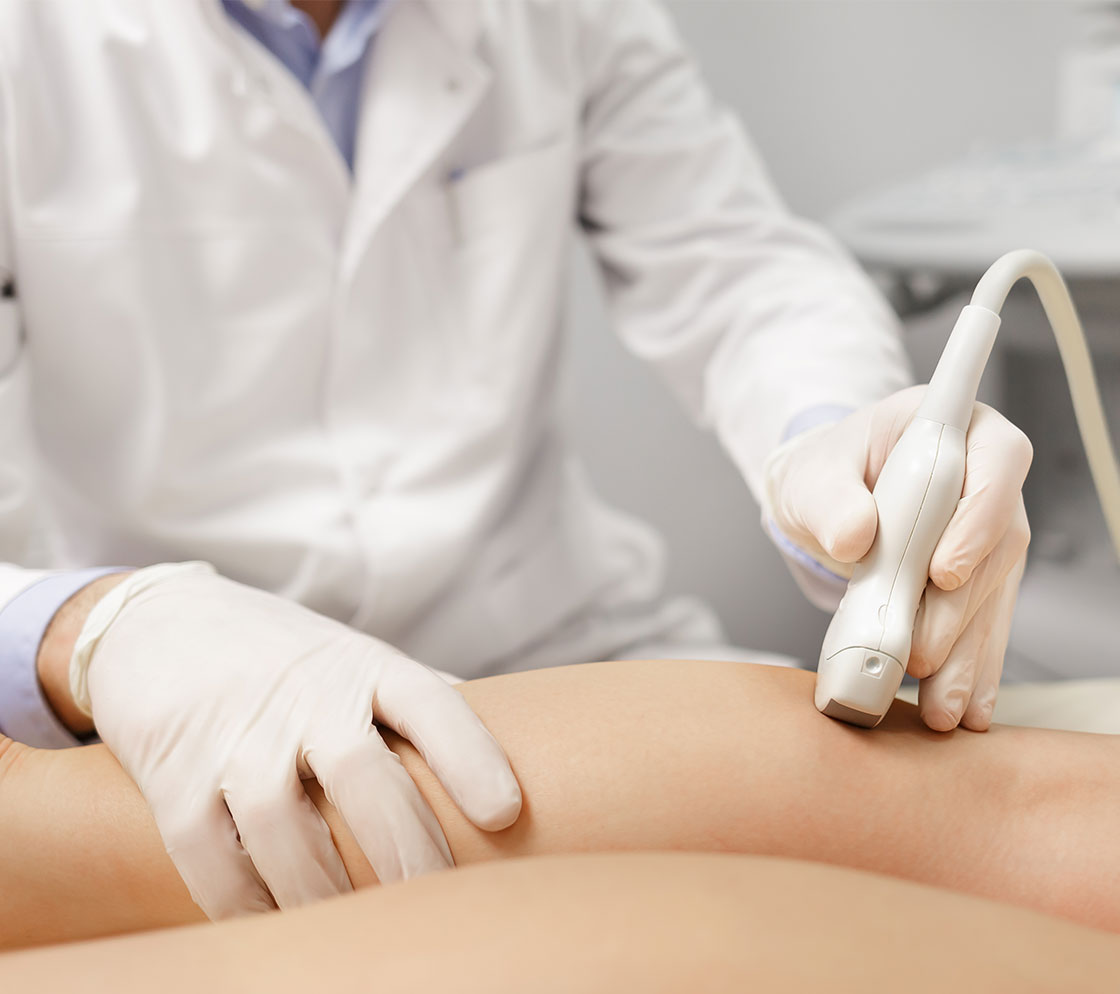
Your Veins Consultation
Your journey starts with a consultation at one of our UK advanced CQC-registered Vascular clinics, including our renowned Varicose Veins Treatment Clinic in London, where one of our expert vascular surgeons will:
- Perform a free dupex ultrasound scan
- Review your medical history
- Discuss your concerns and treatment options
- Provide a detailed treatment plan with costs guide you through any necessary pre-treatment tests and instructions to ensure you’re fully prepared.
Find out more about your Varicose Vein Consultation & Duplex Ultrasound Scan
Varicose Veins Before & After Photos
We’re one of the UK’s centres of excellence for minimally invasive treatments for leg veins. Our before and after gallery showcases real results from our minimally invasive treatments.
Your Varicose Vein Treatment
We ensure only the most effective minimally invasive vein removal treatments approved by NICE Guidelines are available at our veins clinics. Your vascular surgeon takes this into account when deciding on the most appropriate option for you.
Our treatments offer the following advantages over traditional surgery:
- No need for a general anaesthetic
- Tailored treatment plans
- No scars
- Reduced Downtime
- Low Recurrence Rates
- Industry-leading aftercare with successful outcomes
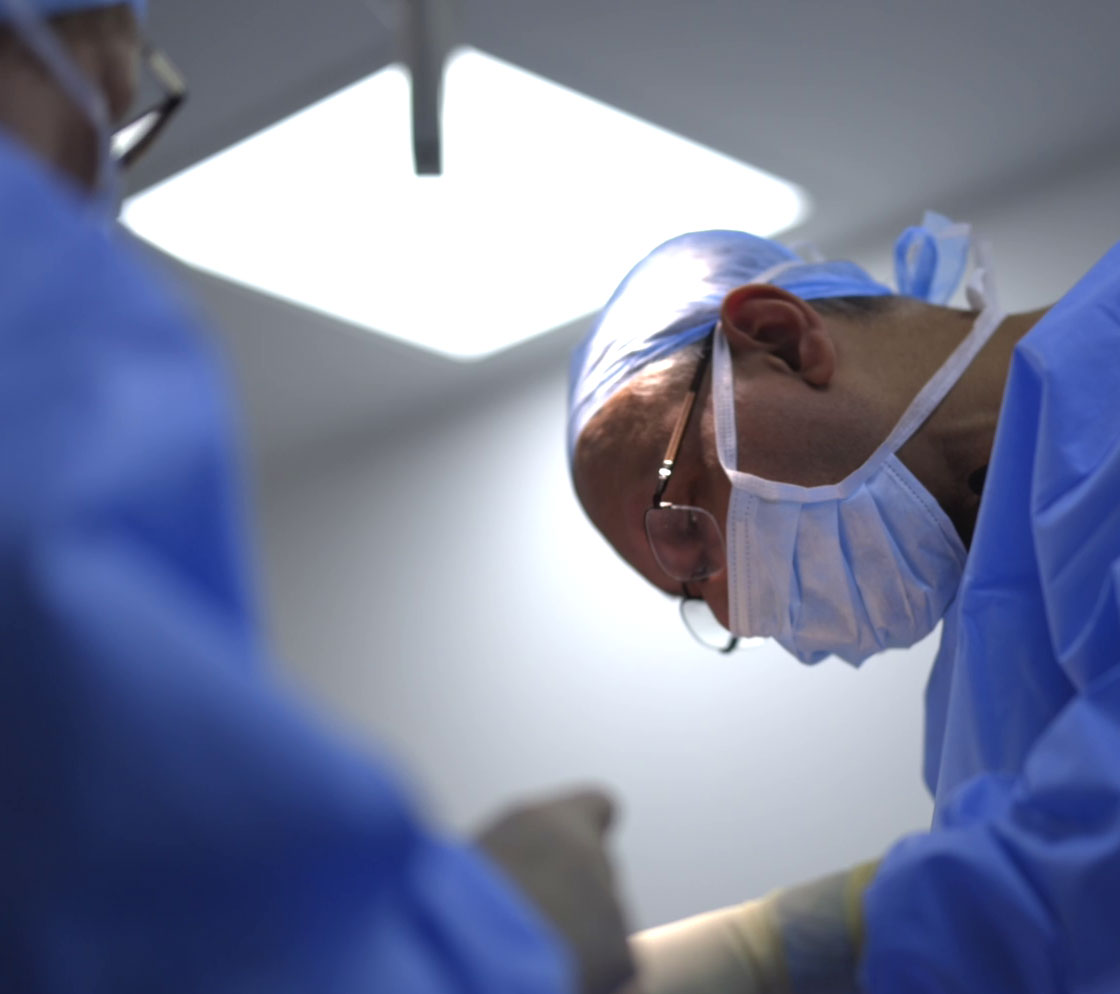
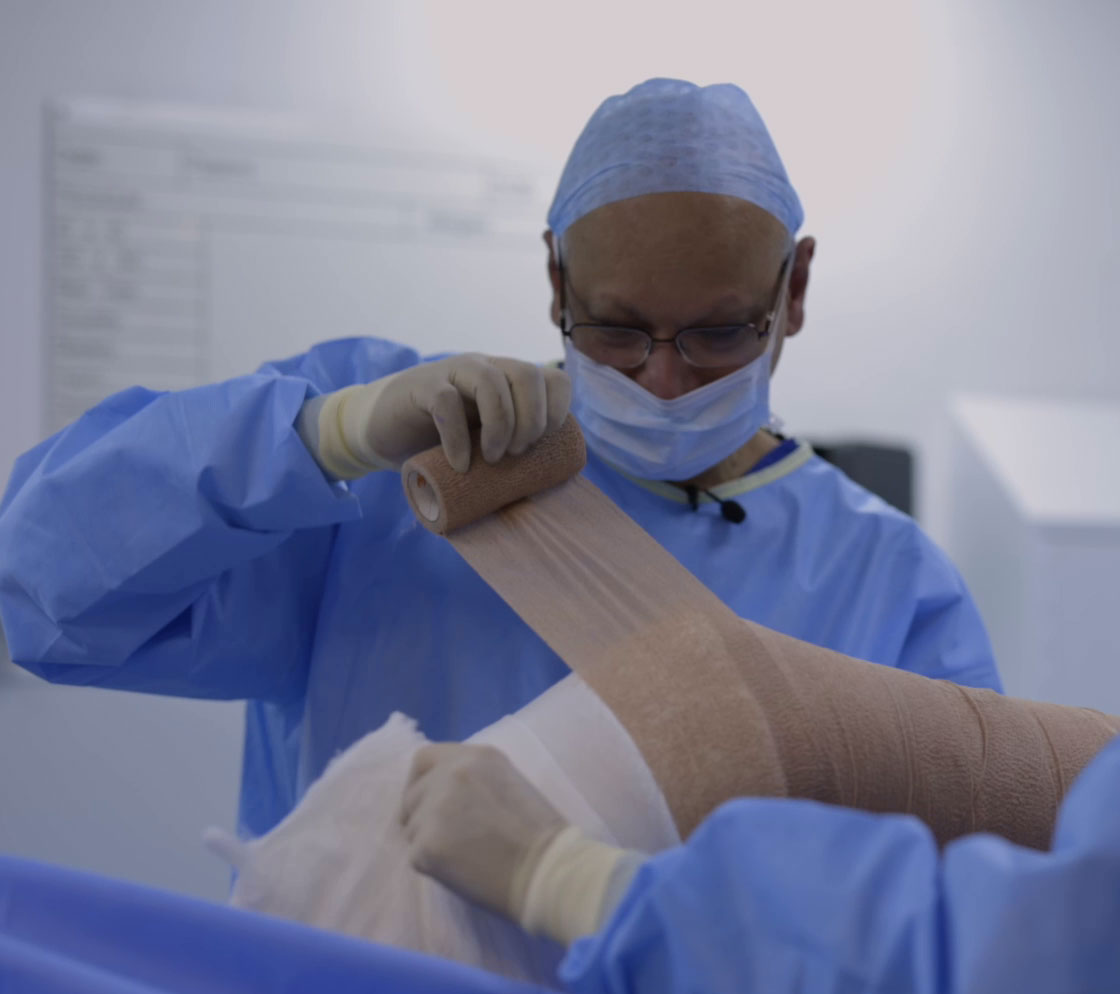
Varicose Vein Recovery & Aftercare
Immediately following your varicose vein removal procedure, bandages will be applied to the treated areas and in most cases compression stockings will need to be worn in the days following your procedure. You will also be provided with a post-operative instruction sheet explaining what to do and what to avoid following your procedure.
All patients benefit from our comprehensive aftercare, including a 6-week follow-up to:
- Assess your recovery
- Advise on further treatments if required
- Discuss the prevention of recurrence
Learn more about varicose vein recovery and aftercare
Pricing and Financing Options
At The Private Clinic, the cost of your Varicose Vein Removal procedure will vary depending on the techniques recommended by your surgeon.
Foam Sclerotherapy from £1,050
EVLA/RFA from £3,030
Phlebectomy from £1,540
VenaSeal from £3,590
We believe everyone should have access to the care they need. We offer flexible financing options, including 0% interest plans, to make your treatment more accessible. Your EVLA/RFA treatment could cost as little as £55.44pm.
The Private Clinic has collaborated with Chrysalis Finance to offer a variety of payment choices for our patients including:
24 – 48 months at 14.9% APR
12 months 0% Interest-free – APR
Included in this treatment
- A dedicated Patient Co-ordinator, who will be your point of contact throughout your journey with us.
- A pre-operative medical assessment to ensure you are fit for surgery.
- Your procedure will be carried out at our established vascular clinics.
- 24/7 on call nurse assistance
- Comprehensive post-operative aftercare courtesy of our specialist cosmetic nurses and medical team.
- All Post-Operative Appointments with your Vascular Surgeon
Patient Stories
Outstanding care, patient satisfaction and results mean everything to The Private Clinic Team.
Read about our patients’ experiences to see what you can expect from our award-winning procedures.

Varicose Veins – Dionne
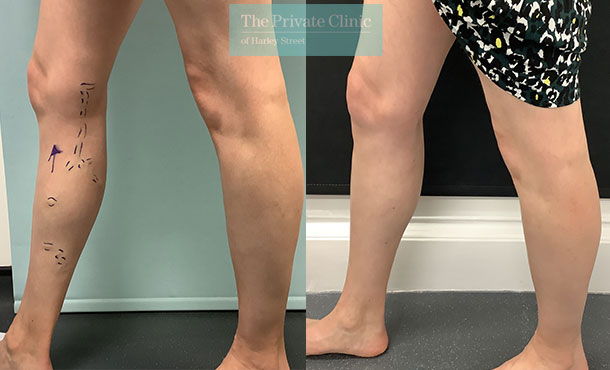
Varicose Veins – Jo
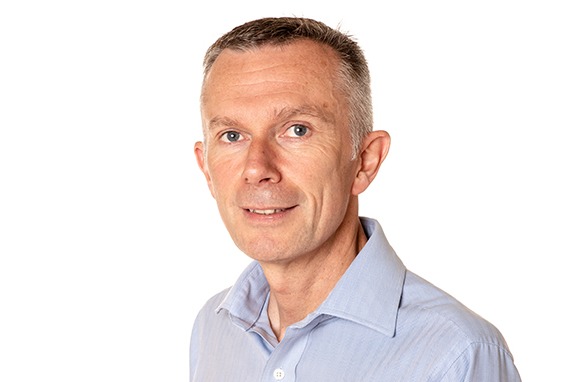
Varicose Veins – Steve
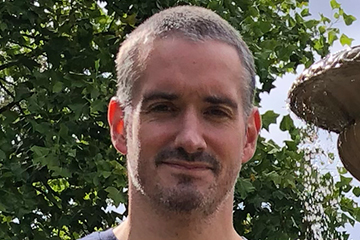
Varicose Vein Leg Removal – Martin
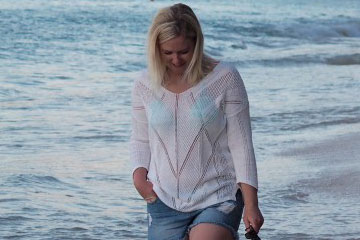
Varicose Veins – Jen
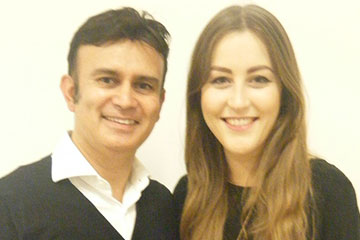
Varicose Vein Treatment – Laura
Frequently Asked Questions
The Private Clinic has over 40 years of experience as a leader in cosmetic surgery. Our expert team is ready to answer your questions and provide peace of mind. Below are some common FAQs about Varicose Veins. Rest assured, all questions will be addressed in detail during your consultation, and specific FAQs for each procedure can be found on the respective pages.
NICE (National Institute for Health and Care Excellence) is a national body in the UK that is made up of a board of medical experts who provide evidence-based guidance, quality standards, advice and pathways for health and social care.
The NICE clinical guidelines for varicose veins (CG168) were published in 2013 and updated in 2016.
The key priorities for implementation to manage varicose vein symptoms are:
- Referral to a vascular service
- Assessment using duplex ultrasound and treatment
- Non-interventional treatment including Endovenous laser treatment (EVLA)
To find out more about NICE guidelines for Varicose Vein treatment, click here to read out blog.
Your surgeon after assessment and ultrasound will discuss the best treatment for you.
Foam sclerotherapy is an option for Varicose Veins. It is only suitable as a primary treatment for a small amount of our patients. The majority of varicose vein treatments involve endothermal ablation with RFA or EVLA. Glue therapy is also provided and although less painful is a little more expensive. Our results are second to none and the complication rates for all treatments are low.
To book a consultation with a vascular surgeon click here.
Most cases of phlebitis in the legs are caused by the presence of varicose veins or hidden varicose veins. We know that varicose veins are caused by irregular venous flows, vein wall damage and venous reflux, where blood flows back down the vein in the wrong direction, leading to cases of inflammation and vein swelling. By treating these venous issues with varicose vein treatments, the venous reflux can be stopped in its tracks, allowing the patient to prevent further phlebitis or a serious worsening of the condition. By seeking out a detailed venous duplex ultrasound scan with us, we are able to accurately assess the extent of your phlebitis, before proposing a suitable treatment to target the symptoms and prevent further complications. It is essential to request this detailed assessment if you are suffering from phlebitis, so that we can rule out or treat any underlying deep vein thrombosis (DVT) and pulmonary embolism (PE) issues, which can be life-threatening in some cases.
Phlebitis refers to the inflammation of a vein. It describes the process when veins become swollen, bulging and inflamed due to blood clotting inside of the vein, or because the vein walls are damaged. Phlebitis can occur in both superficial veins that are closer to the skin’s surface, or deeper veins. These veins can become sore, red, itchy and tender, and may develop an infection if the blood clot is severe, leading to deep vein thrombophlebitis. Superficial phlebitis, which affects shallow veins is rarely serious, but may develop into Deep Vein Thrombophlebitis. This describes clotting in the larger and deeper blood vessels that usually rest in the legs. Large blood clots can form, which may break off and travel to the lungs. This is a serious condition called pulmonary embolism and requires immediate medical attention.
- Veins could be enlarged, swollen, lumpy, bumpy or twisted in appearance.
- Most commonly found on the legs or feet and can be blue or dark purple in colour.
- Swollen feet or ankles.
- Uncomfortable, heavy or aching feeling in the legs.
- Dry skin in the area of the affected vein.
- Muscle cramps in the leg.
- Burning or throbbing sensation in the legs.
Our Expert Surgeons
Our Consultant vascular surgeons are pioneers in EVLA/RFA and have treated thousands of patients.
At our clinics, you will only see and be treated by a Consultant Vascular surgeon for varicose veins, not a radiologist or nurse.
A consultation with one of our Consultant Vascular Surgeons costs £200, with a free ultrasound scan of your legs (usually priced at £350 to £450 at most clinics and private hospitals).
Consultant Vascular Surgeon
Consultant Vascular Surgeon
Consultant Vascular Surgeon
Our Clinics
We only treat with local anaesthetic in our CQC (Care Quality Commission) registered Vein clinics in London Harley Street, London Fitzroy, Birmingham and Bournemouth. Varicose vein consultations are also available at our clinic in Northampton.
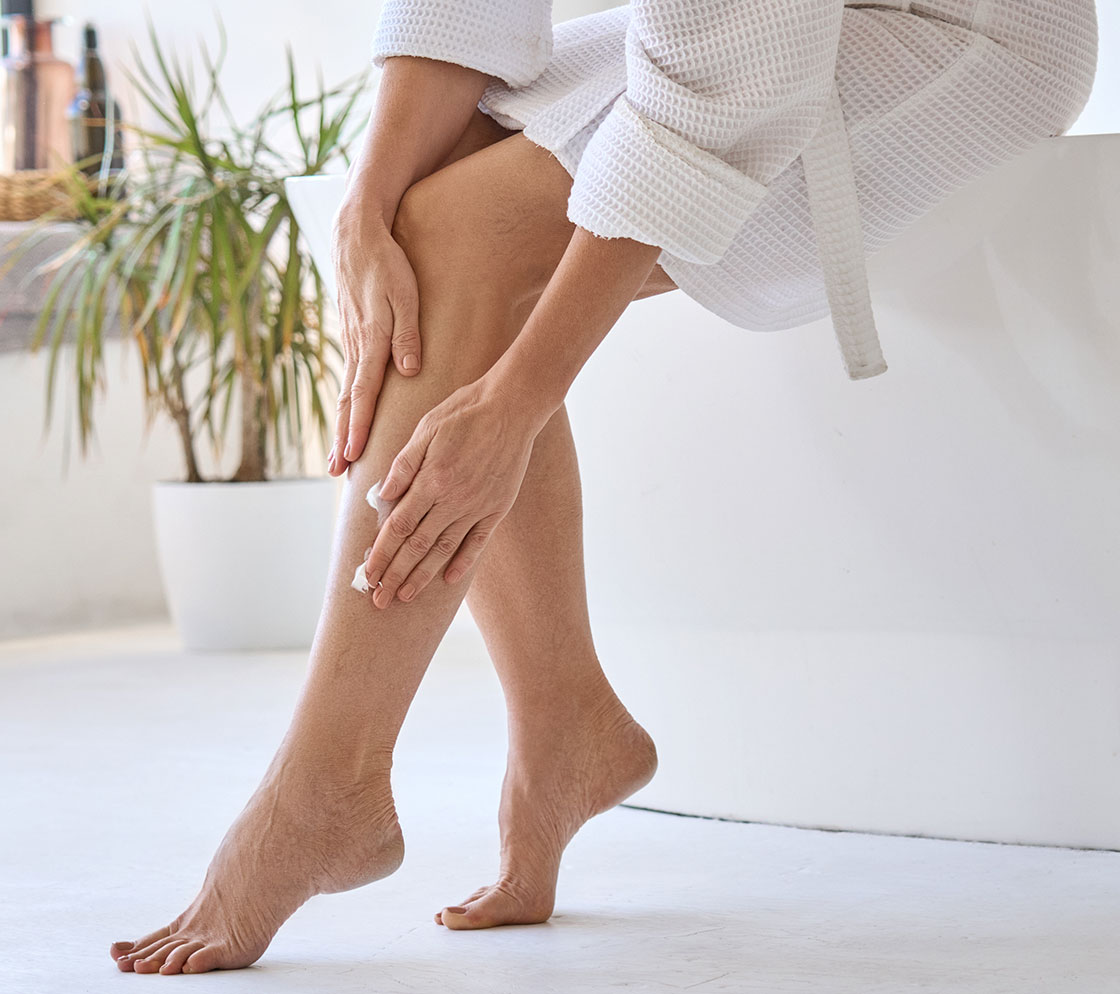
Start your journey to healthier legs today
If you’re ready to take control of your varicose veins, treatment at The Private Clinic is your best option. Our combination of expert care, advanced techniques, and comprehensive support has helped thousands of patients regain their confidence and comfort. Throughout your journey, you will only see and be treated by a Consultant Vascular surgeon for varicose veins, not a radiologist or nurse.
We focus on treating the underlying cause of your veins as well as the visible symptoms. We will hear your concerns & provide you with honest advice. Our uncompromising aftercare includes regular follow-up appointments at no extra cost.
We are here to help, Contact us to schedule your consultation and start your journey to healthier, more confident legs today by calling 0330 057 5021.





